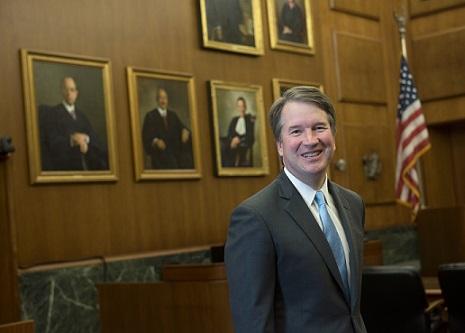Political science department to screen “Anita”
A screening of the documentary “Anita,” sponsored by the political science department, will take place at 11 a.m. on Sept. 27 in Mandeville Hall.
The documentary tells the story of Anita Hill, an attorney who, in 1991, testified during the confirmation hearings for U.S. Supreme Court Justice Clarence Thomas that Thomas had sexually harassed her. Thomas was ultimately confirmed. Congressional leaders were criticized for not allowing women who had similar accusations against Thomas to testify at the hearing and in general, for treating Hill poorly during the process.
Hill’s experience is a national news story again after Christine Blasey Ford, Ph.D., a psychologist and professor of statistics at Palo Alto University, accused U.S. Supreme Court nominee Brett Kavanaugh of sexual assault.
The alleged assault occurred while the two were high school students. At press time, Blasey Ford was set to testify before the Senate Judiciary Committee on Sept. 27.
There were already plans to show the documentary “Anita” prior to the public release of Blasey Ford’s accusations, according to Lisa Baglione, Ph.D., professor of political science.
Susan Liebell, Ph.D., associate professor of political science, said discourse surrounding Kavanaugh’s nomination is impacted by what happened to Hill during the Thomas nomination, as well as by the polarized nature of politics today.
“What we are seeing is a combination of a high politically charged environment because Democrats are upset about Merrick Garland, the sexual harassment haunt of Clarence Thomas and the fact that this is a very polarized country right now just about equally divided in its thinking,” Liebell said.
Garland was nominated by then President Barack Obama to serve on the Supreme Court after the death of Justice Antonin Scalia, but a Republican-majority Congress refused to consider the nomination.
As contentious as Kavanaugh’s nomination process has been, many St. Joe’s students are not paying attention, according to faculty and students themselves.
“There is not much discussion, and I think that in the wake of the election of Trump in the fall of 2016, there has been less open discussion about politics, in my observation, on the campus,” Liebell said. “So I have to say I haven’t heard very much from students.”
For Maxwell Ickes ’20, a political science major and member of Student Senate, that’s because students do not feel as if they have an impact on politics.
“The lack of interest has a lot to do with the idea that we don’t have as much of a say, but you know, you do have a say,” Ickes said. “The lawmakers that are making our laws, what were they doing at our age? They were college kids.”
Matthew Freney, ’19, president of College Republicans, said disinterest has to do with an onslaught of news.
“I think they are just fatigued at this point, just constant news coverage,” Freney said. “It’s just never-ending.”
While students may not being paying attention now, if confirmed, Kavanaugh will have a lifetime appointment to the highest court in the United States.
“I don’t think people realize what’s at stake,” Miguel Gonzales ’21 ’21 said. “Whatever side you’re on, this is really important.”
Despite this importance, students’ engagement with the nomination seems relative, Gonzales said.
“I think it really depends on the major and what the interests are,” said Gonzales, himself a political science major, said.
Yet, if Kavanaugh is confirmed, it will lead to a conservative court which will rule in ways that will impact the lives of St. Joe’s students and U.S. citizens alike.
“What I would expect to see are a lot of decisions that were made at the federal level being turned back to the state,” Regina Robson, J.D., associate professor of management said. “I would see a lot more protection of religious liberty over general law, so if you have people whose religion makes it unpalatable for them to deal with same sex couples I’d see the scale tipping in that direction.”
This is the reason why Ickes said students should be paying attention.
“Any nomination should matter,” Ickes said. “Right now we have big laws on the table that the Supreme Court will be working with.”
Even with such laws at stake, young people often do not vote. While there are enough millennial-aged voters to make up the majority of the electorate, just under half of millennials voted in the 2016 election, according to the Pew Research Center.
College students need to understand their value in the political process, Robson said.
“It’s important that we have diverse opinions and young people are a part of that,” Robson said. “They bring different values to the table. They have to live with these decisions, and they just don’t seem to want to show up at the polls.”
Editor’s note: The name of a source interviewed for this story was anonymized to protect them from online harassment.














































